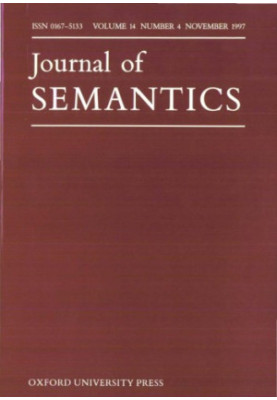Journal of Semantics, Volume 14, Issue 4, 1997 14 4
 Instant download
Instant download
after payment (24/7)
 Wide range of formats
Wide range of formats
(for all gadgets)
 Full book
Full book
(including for Apple and Android)
In this groundbreaking book, Wierzbicka demonstrates that every language has its "key concepts" and that these key concepts reflect the core values of the culture. Further, she argues that within a culture-independent analytical framework one can study, compare, and even explain cultures to outsiders through their key concepts. The framework Wierzbicka proposes is the well-known "natural semantic metalanguage" that she developed with her colleagues. For this study, Wierzbicka focuses on four languages and cultures: Japanese, Australian English, Polish, and Russian. She identifies "culture laden" words in each of these languages; these words are, in a sense, "untranslatable." She shows, however, that the words can be "explained" by means of the semantic metalanguage's hypothetical semantic primitives such as someone, something, do, happen, want, say, know, think, good, bad, etc.
LF/345982/R
Data sheet
- Name of the Author
- Oxford University Press
- Language
- English
- Series
- Journal of Semantics 14 4
- ISBN
- 9780195095746
- Release date
- 1997



























